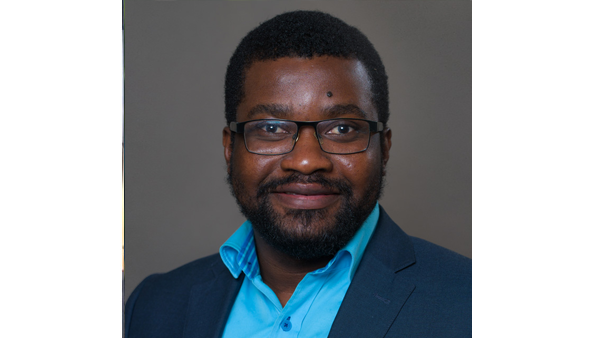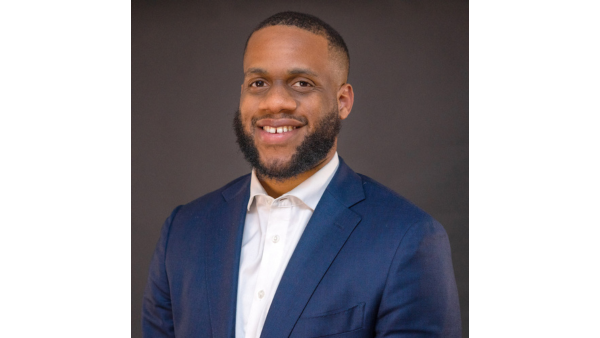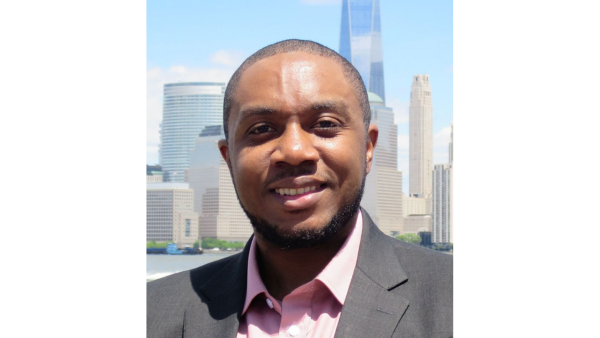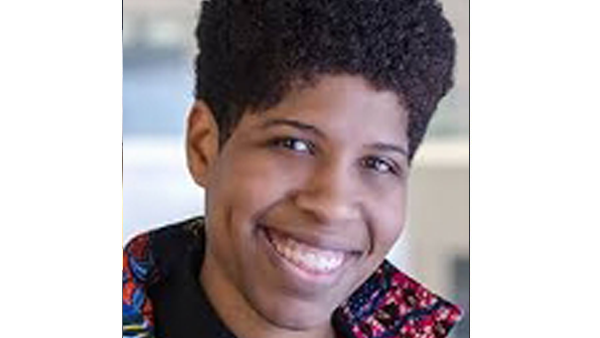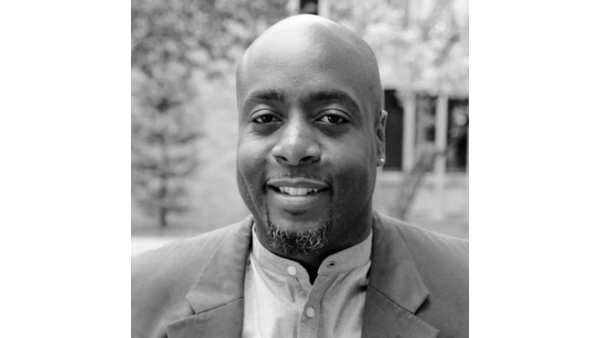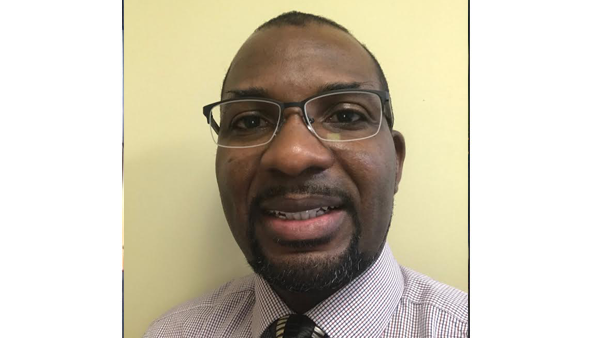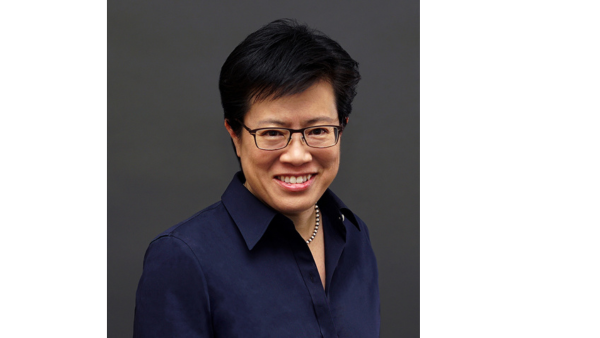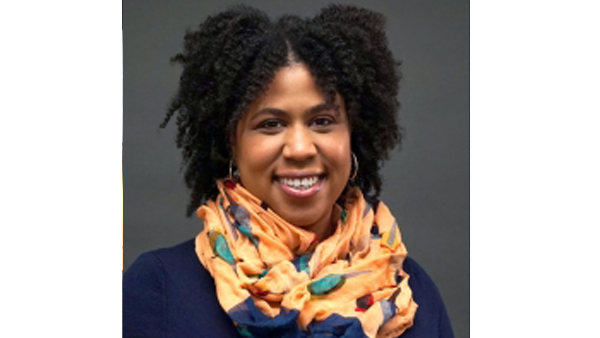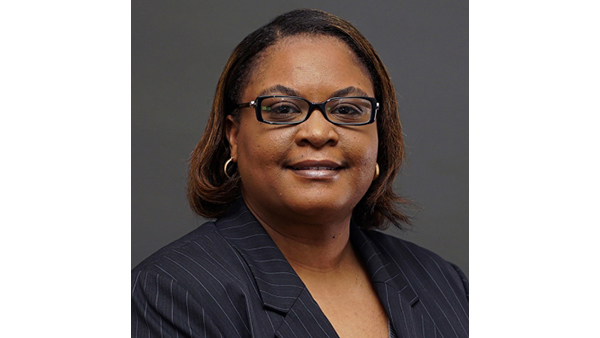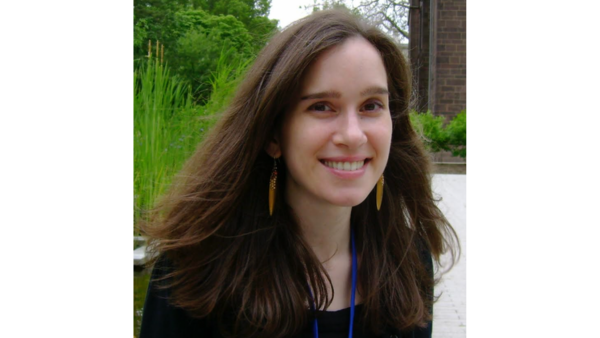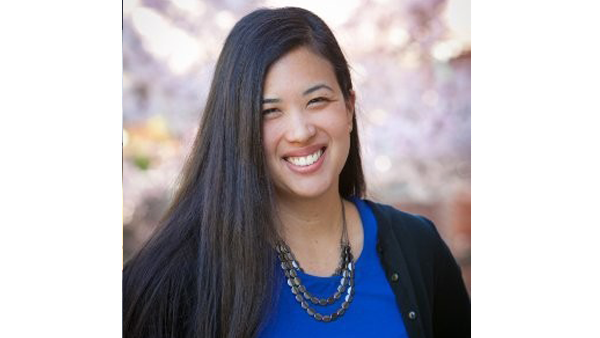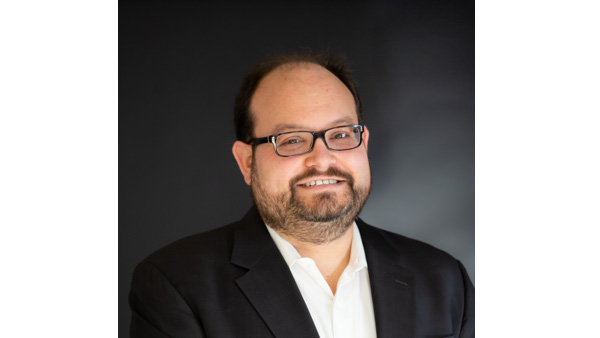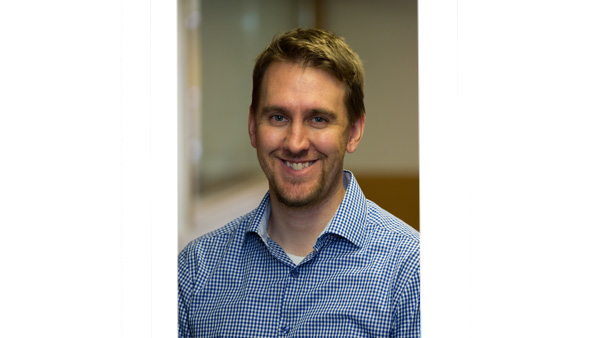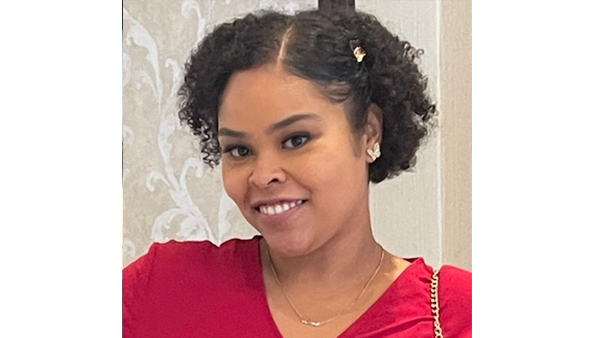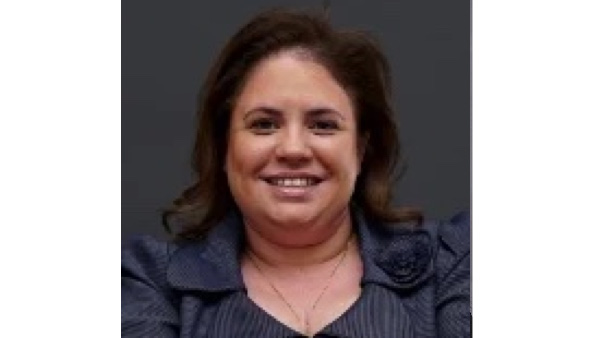Throughout the PQAR summer program students will be given a series of lectures from NYU/NYC faculty and researchers, on subjects related to Responsible Conduct of Research (RCR), Professional Development, Site visits and general aging-related topics. The biographies of this summer's featured speakers are listed below.
Faculty Lecture Series
Prince M. Amegbor, PhD
Assistant Professor of Global & Environmental Health | NYU School of Global Public Health
Jemar Bather, PhD
Senior Scientist, Biostatistics | Merck Research Laboratories; Visiting Assistant Professor of Biostatistics | NYU School of Global Public Health
Mark A. Bernard, PhD
Instructor of Neurology & Junior Research Faculty, ADRC | NYU Grossman School of Medicine
Emma K. T. Benn, DrPH
Associate Professor, Center for Biostatistics and Department of Population Health Science and Policy | Icahn School of Medicine at Mount Sinai (ISMMS)
Anthony Q. Briggs, PhD
Instructor of Neurology & Junior Research Faculty, ADRC | NYU Grossman School of Medicine
Omonigho Michael Bubu, MD
Assistant Professor & Physician-Scientist | NYU Grossman School of Medicine
Virginia Chang, MD, PHD
Associate Professor of Social and Behavioral Sciences | NYU School of Global Public Health
Stephanie Cook, PhD
Assistant Professor of Biostatistics & Social and Behavioral Sciences | NYU School of Global Public Health
Melody Goodman, PhD
Interim Dean, Professor of Biostatistics| NYU School of Global Public Health
Responsible Conduct of Research Series
Shawna Benston, JD, MBE
Assistant Director, Research Integrity and Ethics | NYU Office of Research Integrity and Compliance
Ivan Oransky, MD
Editor in Chief | Spectrum; Distinguished Writer in Residence | NYU Arthur Carter Journalism Institute; Co-Founder | Retraction Watch
Vicky Rampin, MLIS
Librarian for Research Data Management and Reproducibility | NYU Libraries: Data Services
Professional Development Series
Rebeca Checo
Danielle Ompad, PhD
Vice Dean for Academic Affairs, Professor of Epidemiology, Deputy Director for the Center for Drug Use and HIV/HCV Research | NYU School of Global Public Health
Thaddeus Tarpey, PhD
Professor of Population Health and PhD Program Director | NYU Grossman School of Medicine
Prince M. Amegbor, PhD
Dr. Amegbor is an Assistant Professor at NYU School of Global Public Health, Global & Environmental Health Program, with a cross-appointment in the Department of Social and Behavioral Sciences. Previously, he served as a post-doctoral research fellow at Aarhus University and the Danish Big Data Centre for Environment and Health (BERTHA). Dr. Amegbor also was a co-task leader in two EU Horizon 2020-funded projects, ICARUS and REGREEN. As a guest researcher at Statistics Denmark, Dr. Amegbor collaborates on novel spatial methods to model disease risk distribution using individual-level data. His research focuses on the impact of environmental exposures, specifically climate change and ambient air pollution, on the health of vulnerable populations. With a multidisciplinary approach and expertise in health geography, he uncovers social and geo-spatial inequalities in health through the utilization of diverse methodologies and big data analysis
Jemar Bather, PhD
Dr. Jemar Bather is a Senior Scientist in Biostatistics at Merck Research Laboratories and a Visiting Assistant Professor of biostatistics at the NYU School of Global Public Health. He leverages statistical tools to address public health challenges in infectious diseases and social epidemiology. Dr. Bather is also passionate about increasing diversity in public health and statistics. He received his PhD and MA in biostatistics from Harvard University, MS in applied statistics from NYU Steinhardt, and his BS in statistics from Penn State.
Mark A. Bernard, PhD
Dr. Mark A. Bernard is an Instructor of Neurology at NYU Grossman School of Medicine, where he is junior research faculty at NYU’s Alzheimer’s Disease Research Center (ADRC), and most recently, a new member of the ADRC Biomarker Core. His current research focuses on increased understanding and development of biomarkers of Alzheimer’s Disease (AD), particularly those in blood plasma. He is investigating associations between neuropsychiatric symptoms (such as anxiety and depression) and changes in these biomarkers, and is further interested in the nexus between plasma AD biomarkers and sleep and circadian rhythm dysfunctions.
Dr. Bernard is a chemical biologist by training, with a PhD in Organic Chemistry, and a postdoctoral fellowship and Master’s degree in Clinical Epidemiology and Health Services Research. This unique background, combining basic physical sciences and clinical research, informs Dr. Bernard’s continued interest in not only the molecular mechanisms of disease progression, but also in developing culturally-competent methods of translational research, aimed at reducing health disparities in his and other underserved communities. Mark enjoys food, travel, cars, and photography. However, most of the time, he’d rather be out riding his bike.
Emma K. T. Benn, DrPH
Dr. Emma K. T. Benn is an Associate Professor in the Center for Biostatistics and Department of Population Health Science and Policy and the Founding Director of the Center for Scientific Diversity at the Icahn School of Medicine at Mount Sinai. Dr. Benn enjoys contributing her biostatistical expertise to health equity research and to research investigating best practices for recruiting, retaining, and advancing underrepresented trainees and faculty in the biomedical research workforce. Dr. Benn serves as the PI of the Clinical Research Education in Genome Science Short Course. Dr. Benn holds the prestigious honors of American Statistical Association Fellow, Association for Women in Mathematics Fellow, and being a part of the Committee of Presidents of Statistical Societies Inaugural Leadership Cohort. Dr. Benn has a BA in Chemistry (Spanish Minor) from Swarthmore College and an MPH in Sociomedical Sciences and DrPH in Biostatistics from Columbia University Mailman School of Public Health.
LinkedIn | Twitter | Website
Anthony Q. Briggs, PhD
Dr. Anthony Q. Briggs is an Instructor (Junior Faculty) and researcher in the Department of Neurology at NYU Langone Health at Grossman School of Medicine at the ADRC. Dr Briggs was awarded the Alzheimer Association research fellowship (AARF-D) in January 2024. Dr. Briggs research examines the association of sleep duration, cerebral blood flow, pre-clinical Alzheimer’s disease (subjective cognitive decline) process in the lives of racial and ethnic minorities, especially Black /African Americans. The goal is to create critical medical culturally sensitive strategies that may be developed to promote overall brain health and aging. Ideally the goal is to reduce the risk, prevent and slow down the progression of Alzheimer Disease.
Dr. Briggs is also CIES African Diaspora SIG Emerging Scholar Award, The Alzheimer’s Association Interdisciplinary Summer Research Institute, Research Education Component (REC) ADRC Scholar, (PRIDE Institute on Behavioral Medicine and Sleep Disorders Scholar, Black Men’s Brain Health Emerging Scholar, The Young Investigators Research Forum from the American Academy of Sleep Medicine (AASM) Scholar.
Linkedin
Omonigho Michael Bubu, MD
Dr. Bubu is an Assistant Professor and physician scientist at NYU Grossman School of Medicine (NYUSoM), in the Departments of Psychiatry, Population Health and Neurology, with a programmatic research focus on sleep, aging and Alzheimer’s disease (AD). Dr. Bubu has graduate, internship, and fellowship-level clinical and research training in neurology, neuro-epidemiology and public health. His research examines how age-related and age dependent sleep changes, and vascular risk, impact cognitive decline and AD risk, and how they drive AD related disparities.
LinkedIn | Website
Virginia Chang, MD, PhD
Virginia W. Chang, MD, PhD is Associate Professor of Global Public Health at NYU School of Global Public Health, Associate Professor of Population Health at NYU School of Medicine, and Affiliated Associate Professor in the Department of Sociology at NYU. Dr. Chang is a graduate of the Inteflex Program at the University of Michigan, where she received her BS and MD degrees. She then completed a residency in internal medicine, fellowship training with the Robert Wood Johnson Foundation Clinical Scholars Program, and a PhD in sociology, all at the University of Chicago. Prior to joining NYU, Dr. Chang was in the Division of General Internal Medicine at the Perelman School of Medicine at the University of Pennsylvania and a staff physician at the Philadelphia Veterans Administration Medical Center.
As a physician and sociologist, Dr. Chang integrates perspectives from medicine, epidemiology, sociology, and demography in her research. Much of her work has focused on obesity and health disparities, engaging topics such as the influence of socially structured context (e.g., racial segregation, income inequality, neighborhood social/physical disorder) on obesity; the relationship of obesity to mortality and disability; the influence of weight status on the quality of medical care; socioeconomic disparities in health and mortality; and the inter-relationships between health, medical technologies, and stratification.
Stephanie Cook, PhD
Dr. Stephanie Cook’s overarching research focus is to understand how structural- and individual-level minority stressors contribute to mental health, physical health, and health behaviors across the life span. Further, she seeks to understand how features of close relationships can exacerbate or buffer the negative effects of minority stress on health. Her work primarily focuses on young adults transitioning to adulthood who are at the intersection of racial/ethnic and sexual orientation status. In addition, much of her current work examines the links between minority stress (i.e., daily experiences of discrimination) and biological markers of stress (e.g. cortisol and c-reactive protein).
Dr. Cook’s substantive methodological and statistical focus is on the development and application of longitudinal study designs (i.e., intensive longitudinal designs) for determining the ways in which dynamic changes in features of minority stress (e.g., daily and momentary discrimination events) are associated with changes in risk behaviors and physical health (e.g., sexual risk and substance use, pre-clinical cardiovascular disease, and biological stress) among racial/ethnic and/or sexual minority young adults.
Dr. Cook is the Director of the Attachment and Health Disparities Research Lab (AHDL) which is currently made up of about 20 undergraduate, graduate, and postdoctoral fellows. She developed an integrated theory of adult attachment (the Integrated Attachment and Sexual Minority Stress Model [IASMS]; i.e., the development, or lack, of strong socio-emotional bonds) and minority stress (i.e., social stress experienced by individuals in minority social groups) as a means to better understand and address the health needs of disadvantaged youth transitioning to adulthood. Dr. Cook and her team’s long-term goal is to continue creating, implementing, and refining sustainable interventions to reduce the influence of stress on health utilizing innovative methodologies.
LinkedIn | Twitter | Website
Melody Goodman, PhD
Dr. Melody Goodman’s efforts seek to understand the social risk factors that contribute to health disparities in urban areas, with the goal of developing culturally competent, region-specific, and evidence-based solutions through collaborative activities with community members, community-based organizations, faith-based organizations, and other community health stakeholders. The purpose of her work is the development of solutions for improving health in minority and medically underserved communities.
Dr. Goodman conducts applied biostatistical and surveys research for community-based interventions and health disparities research with a strong focus on measurement. Additionally, through academic-community collaborations, she implements, evaluates, and enhances the infrastructure of community-engaged research, in order to mitigate health disparities. As such, Dr. Goodman is the Principal Investigator of a Patient-Centered Outcomes Research Institute (PCORI) grant that aims to validate and implement a quantitative survey measure to assess the level of community engagement in patient-centered outcomes research (PCOR) and clinical effectiveness research (CER) studies from the community stakeholder perspective.
Twitter
Shawna Benston, JD, MBE
Shawna Benston is the Assistant Director of Research Integrity and Ethics in NYU's Office of Research Integrity and Compliance. She organizes and hosts various educational programming and speaker events on topics that fall under the broad umbrella of the responsible and ethical conduct of research (RECR). She also serves as part of the team responsible for investigating allegations of research misconduct at NYU.
Prior to joining NYU, Shawna served Columbia University as Director of Programs in the Division of Ethics, and as Associate Director for Research Compliance Education in the Office of Research Compliance and Training. She also completed a postdoctoral fellowship in the Ethical, Legal, and Social Implications (ELSI) of Genetics, also at Columbia, focusing on the ELSI of gene-editing technologies like CRISPR. Her background is in law (JD from the Benjamin N. Cardozo School of Law), bioethics (Masters of Bioethics from the University of Pennsylvania), and the humanities (Masters in Classics from the University of St Andrews; BA in English and Classical Civilization from Yale University).
Shawna will present to students on the topic of Responsible and Ethical Conduct of Research.
Emy Cardoza
Emy Cardoza is the director of global diversity education and faculty engagement. She provides strategic direction for global diversity education and training. She also develops and facilitates global inclusion, diversity, belonging, equity, and access (GIDBEA)-focused curriculum for students, staff, and faculty across the global network. Prior to this role, Emy served as the associate dean for student life at Barnard College and the associate director for multicultural student affairs at the University of Chicago. She brings over a decade of experience in diversity education and curriculum design, focusing on a holistic approach to student learning and identity development.
Emy received her BA in Religious Studies from Rollins College and has also earned a Master of Divinity from the University of Chicago and a Master of Education from Loyola University Chicago. She is currently pursuing a PhD in Philosophy and Education at Teachers College, Columbia University.
Website
Emy will present to students on the topic of Safe and Ethical Research Environments.
Ivan Oranksy, MD
Ivan Oransky, MD, is co-founder of Retraction Watch, editor in chief of Spectrum, and distinguished writer in residence at New York University's Arthur Carter Journalism Institute. He also serves as president of the Association of Health Care Journalists. Ivan previously was vice president of editorial at Medscape, global editorial director of MedPage Today, executive editor of Reuters Health, and held editorial positions at Scientific American and The Scientist. A 2012 TEDMED speaker, he is the recipient of the 2015 John P. McGovern Medal for excellence in biomedical communication from the American Medical Writers Association, and in 2017 was awarded an honorary doctorate in civil laws from The University of the South (Sewanee). In 2019, the judges for the John Maddox Prize, which promotes those who stand up for science in the face of hostility, gave him a commendation for his work at Retraction Watch.
Twitter: @ivanoransky and @retractionwatch | Website
Dr. Oransky will present to students on his website, “Retraction Watch”.
Vicky Rampin, MLIS
Vicky Rampin is the Librarian for Research Data Management and Reproducibility, as well as the liaison librarian to data science, at New York University. Vicky supports researchers of all levels and disciplines through individual and group consultations, teaching workshops, and maintaining documentation and tools to help implement data management and reproducibility practices. Her research centers on integrating reproducible practices into different research workflows, advocating openness for all research materials, and contributing to open infrastructure.
Twitter: @VickyRampin | Website
Vicky and Dr. Wolf will present to students on the topic of Data Responsibly & Reproducibility.
Nicholas Wolf, PhD
Nicholas Wolf is a Research Data Management Librarian and Interim Co-Head of NYU Libraries' Data Services department. At Data Services Dr. Wolf supports researchers to organize, transform, preserve, and share their data at all stages of the research lifecycle. This work includes review of grant data management plans and facilitating researcher access to tools for data publish and repository selection.
ORCiD | Website
Vicky and Dr. Wolf will present to students on the topic of Data Responsibly & Reproducibility.
Rebeca Checo
Rebeca Checo is a higher education administrator who serves as the Graduate Recruitment Specialist for the Office of Admissions & Enrollment. Joining GPH in 2022, Rebeca has managed and advised hundreds of prospective and newly admitted students as they begin their studies here at GPH. Rebeca's passion for student success, the future of higher education, and providing a safe & inclusive environment for all student communities has brought her to begin her MA degree program in Higher Education & Student Advising at NYU Steinhardt, in the upcoming Fall 2023 semester.
Rebeca will present to students on the topic of applying to Masters programs.
Danielle Ompad, PhD
Dr. Danielle Ompad is an epidemiologist whose work is focused in the areas of urban health, HIV, illicit drug use, and adult access to vaccines. With respect to illicit drug use, her work has spanned the entire natural history of addiction – from initiation to cessation, with particular attention paid to risk for infectious diseases such as HIV, hepatitis B and C, and STIs. She has primarily worked with people who use heroin, crack, cocaine, and/or club drugs.
In New York City, she has been examining heroin cessation among current, former, and relapsed heroin users. Working with Alliance for Public Health and the Ukrainian Institute on Public Health Policy, she analyzes harm reduction service utilization among people who inject drugs, in order to optimize service delivery in Ukraine. Since 2013, she has served as faculty for the Fogarty-funded New York State International Training and Research Program with the goal of building research capacity in Ukraine.
Dr. Ompad’s National Institute of Allergy and Infectious Diseases-funded study aims to determine if herpes simplex 1 and 2 infections explain racial disparities in HIV incidence among a cohort of young gay, bisexual, and other men who have sex with men (YMSM). In addition, Dr. Ompad and colleagues are assessing HPV infection prevalence, persistence, and clearance among this same cohort.
Dr. Ompad will participate on our panel discussion on doctoral programs.
Thaddeus Tarpey, PhD
Thaddeus Tarpey was born in Lexington, Kentucky. His PhD is from Indiana University and he did a postdoc with the National Institute of Standards and Technology in Boulder, Colorado. Thad is currently a professor in the Division of Biostatistics, Department of Population Health in the NYU School of Medicine and he is the Graduate Director of their PhD program in Biostatistics. Thad’s interests in biostatistics have focused on topics such as functional data analysis, high-dimensional data analysis, classification and precision medicine. More recently, Thad has become involved in designing and implementing novel clinical trials for non-addictive pain therapies.
Dr. Tarpey will participate on our panel discussion on doctoral programs.
